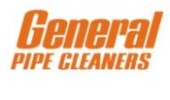
Cross sector HVAC/R sessions bring HRAI members up to speed
April 16, 2014 | By HPAC Magazine
Guest speakers and sessions tackle standards, rules and rule making, along with opportunities in IAQ
Over 80 manufacturers, wholesalers, associates and guests of the Heating Refrigeration and Air Conditioning Institute (HRAI) participated in an information-packed day of product section meetings earlier this month in Mississauga, ON. Guest speaker Michel Girard, vice president, policy and stakeholder relations with the Standards Council of Canada (SCC) revealed trends in standardization and he discussed how standards/accreditation programs are incorporated into regulations. Other guest speakers were Stephane LeBlanc from the Office of Energy Efficiency (OEE) who provided an update on the federal regulatory process and an update on amendment 13 and amendment 14, which have yet to be posted in the Canada Gazette 1. Both of these amendments will increase the stringency of the minimum energy performance standards for numerous HVAC/R products.
Also on the agenda was a meeting of the National Geothermal Council. The Council, which was formed as a result of recommendations from HRAI’s renewable energy task team in 2011, is intended as a national forum for discussion and consensus building on issues of concern to the geothermal sector and is inclusive of the entire supply chain. HRAI is aiming to have representation on the Council from regional groups across the country. In addition to establishing the Council, HRAI reported that it has made inroads into the geothermal sector through its affiliation with the Ontario Geothermal Association in 2013; discussions with other provincial groups; moving on actionable member concerns in Ontario; involvement in the CSA C448 review; and signing manufacturer members from the geothermal industry.
The IAQ/Controls Product Section meeting outlined the Standards and Codes issues facing the ventilation side of the business. These include the imminent amendments to the April 2012 standard, which will address air leakage, ventilation requirements and heat loss as a result of continuous ventilation. An update was also provided on the Furnace Filter Task Force’s progress in addressing industry concerns with it recommending that a code change request be pursued with Ministry of Municipal Affairs and Housing (MMAH) to Adopt MERV 6 rated filters for furnaces in the Ontario Building Code or that the task force encourage the National Research Council (NRC) to conduct further research and field study to determine an effective MERV rating. Andy Oding from Building Knowledge Canada Inc. was also in attendance to talk about IAQ opportunities in Net Zero Homes.
On the controls side HRAI is in the process of creating a presentation that will look at the basics of Smart Controls, applications by building type, definition and examples of devices and the future of the technology. Intended to create awareness of Smart Controls in the HVAC/R market in Canada, the presentation is geared towards light commercial contractors and will be presented at Chapter meetings throughout Canada. It is expected to be completed this summer.
Rulemaking south of the border for air conditioners, heat pumps and furnaces was a hot topic during the Heating and Air Conditioning Product Section meeting. Karim Amrane from the Air Conditioning Heating and Refrigeration Institute provided updates on regulatory activity in the U.S.
Amrane also reported on U.S. rulemaking on commercial refrigeration equipment during the Refrigeration Section meeting. He addressed horsepower limitations on commercial refrigeration equipment as it relates to provincial codes requiring the use of an onsite operating engineer if total installed power in building exceeds 100 Hp, increased efficiency requirements and refrigerant concerns.
HRAI is concerned with Amendment 13 (not yet posted in Canada Gazette 1) to the Federal Energy Efficiency Regulation Packaged Water Chillers that requires air-cooled chillers without condensers to be matched and rated with a condenser and meet the same efficiency requirements as the air-cooled chillers. Chillers without condensers are outside of the scope of AHRI’s certification program, prompting both organizations to work to resolve the issue of the Canadian requirement for all equipment ratings to be verified. AHRI has clarified with NRCan that packaged water chillers do not have to be certified in the same manner as AHRI’s certification program but will be verified by a third party. Verification will take AHRI six months to a year to finalize, and can be a combination of test data and computer programs.
Refrigeration technicians will want to follow developments on the Halocarbon Code of Practice revisions, some of which were outlined at the Refrigeration Section meeting. Just a few months ago HRAI provided extensive comments on 2013 Draft Environmental Code of Practice for Elimination of Halocarbon Emissions from Refrigeration and A/C Systems. In HRAI’s view the draft is an improvement over the first. HRAI is awaiting a response from Environment Canada as to what comes next. Finally, the hydrocarbon do-it-yourself issue is gaining traction as the Council of Canadian Fire Marshalls and Fire Commissioners (CCFMFC) considers whether to support HRAI in addressing regulations that should be developed to prevent the sale of Halocarbon DIY kits to unqualified consumers.
HRAI noted that meeting presentations are available in the members’ only section of HRAI’s website and the meeting minutes will be posted when they become available. The next product section meetings are scheduled for August 21, 2014 in Montreal in conjunction with HRAI’s Annual General Meeting. For more information contact Caroline Czajko.
With files from HRAI.




